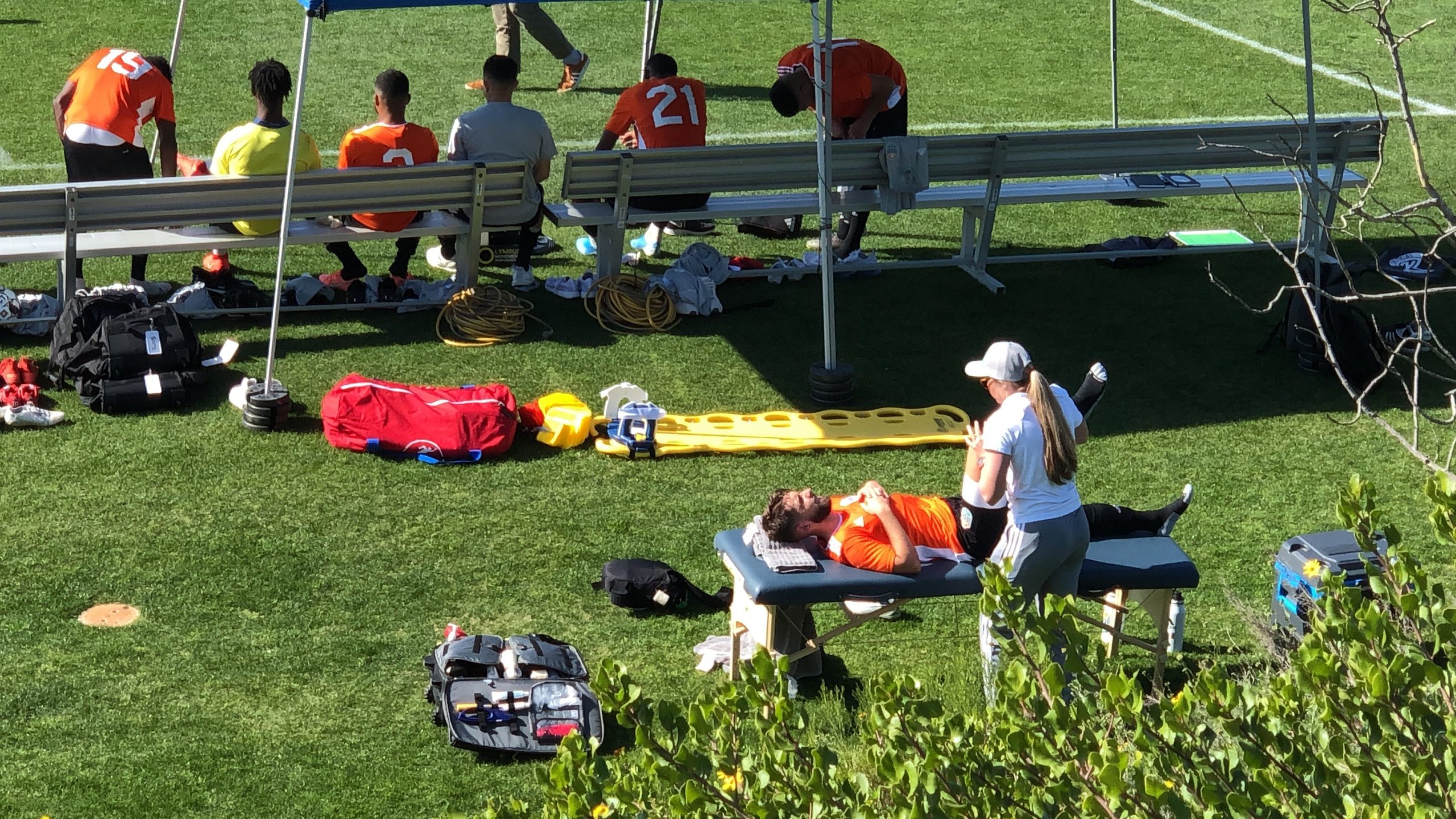When you hear someone mention “athletic trainer”, who do you think of? Do you think of someone who is a personal trainer? Do you imagine the person g
When you hear someone mention “athletic trainer”, who do you think of? Do you think of someone who is a personal trainer? Do you imagine the person giving water to athletes? How about the one running on the field at sporting events when there is an injury? Do you think of someone who can treat an injury? How about a rehab specialist? A movement specialist? A first responder? A healthcare provider?
California is currently the only state in the US that does not regulate the profession of Athletic Trainers.
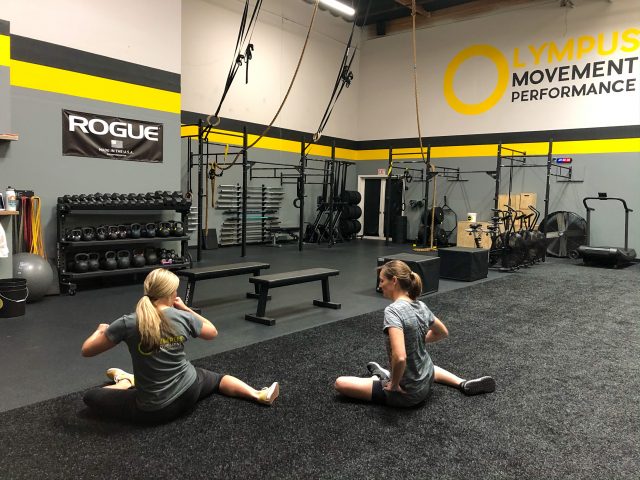
Athletic Trainers play a vital role in sporting events and at high schools in the event of injury. To have a trained health care professional on the field and at practices can ensure an injury is handled properly and safely. California is currently the only state in the US that does not regulate the profession of Athletic Trainers. Anyone can call themselves an athletic trainer without the proper education, training and testing. The Athletic Training Practice Act is underway in an effort to add licensure in California. The California’s Athletic Trainer’s Association is hosting a bill (AB 1665) that would license the athletic training profession. For more information on this bill and how you can support it, you can visit the following link: https://ca-at.org/licensure/

Certified athletic trainers are first-responder medical personnel who are experts in injury assessment and treatment
Everyone has their own idea of what an athletic trainer is, but what most people don’t know is how in depth their role can be. By definition athletic trainers are a key component to the heath care team, and work with physicians and other allied health personnel. Certified athletic trainers are first-responder medical personnel who are experts in injury assessment and treatment, particularly in the orthopedic and musculoskeletal disciplines. Certified athletic trainers have a college degree and are certified and licensed (in most states) by the state board as a health care professional.

But what exactly do athletic trainers do?
They have a wide range of services that are crucial to athletics and can also benefit the non-athlete. So let’s break it down…
Athletic Trainers can:
- Design and implement specific strength and conditioning exercises to reduce the risk of injury and illness.
- Design and implement emergency action plans to ensure medical personnel are adequately prepared in an emergency situation.
- Educate and advise patients of the importance of good nutrition and hydration in sport and in life.
- Screen for muscle imbalances or limitations that could lead to an injury
- Perform an assessment and evaluate an injury.
- Treat and rehabilitate injuries using interventions such as: manual therapy, cupping, IASTM, joint mobilizations, proprioceptive exercises, modalities, and therapeutic exercises.
- Provide immediate and emergency care.
- Manage head and neck injuries.
- Manage and treat concussions.
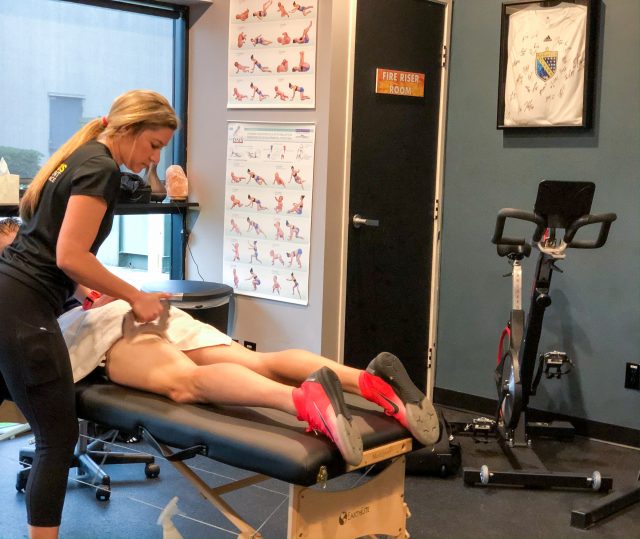
For each $1 invested in preventive care, employers gain up to a $7 return on investment
Athletic trainers provide medical services to all types of patients, not just athletes participating in sports, and can work in a wide range of job settings. Athletic trainers improve functional outcomes and specialize in patient education to prevent injury and re-injury. Preventative care provided by an athletic trainer even has a positive return on investment for employers. ATs are able to reduce injury and shorten rehabilitation time for their patients, which translates to lower absenteeism from work or school and reduced health care costs. They can design exercise and nutrition plans to encourage and help maintain a healthy lifestyle. “For each $1 invested in preventive care, employers gain up to a $7 return on investment, according to two independent studies.” Healthy employees lead to less sick days which leads to better work output.
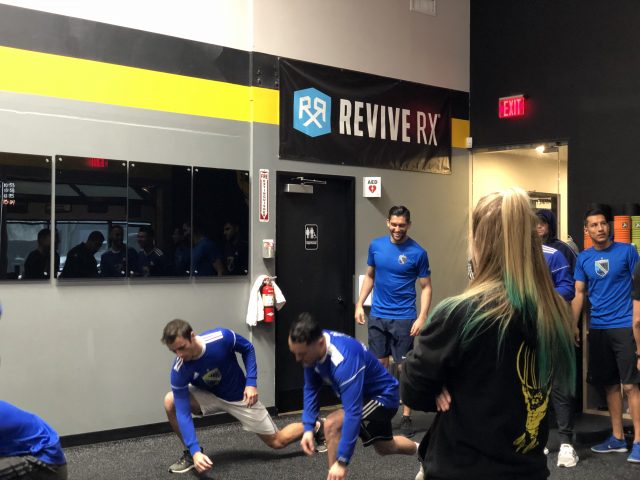
Athletic operations that are run by certified athletic trainers are able to identify at-risk athletes earlier than schools with no athletic trainers
Athletic Trainers are heavily educated and trained in the management of head and neck injuries and heat illnesses. Less than 50% of youth sports and high schools have a certified athletic trainer on site for their events, and these incidents are high at these ages. Every year an average of 12 football players die due to heat-related causes, brain injuries and heart conditions. Athletic operations that are run by certified athletic trainers are able to identify at-risk athletes earlier than schools with no athletic trainers. The conditions present in athletes have become increasingly more complex and are beginning to be understood as having long-term implications if not recognized and treated early. Athletic Trainers are key to making sure athletes are prepared and safe for athletic competition.
Let’s take this back to the top. When you hear someone mention “athletic trainer”, who will you think of now? Hopefully, it has changed a bit in your perspective and even more so how they can help you or someone you know.
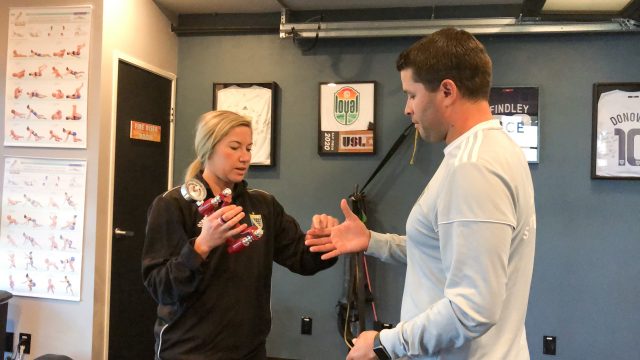
How can parents know that their team’s trainer is legit?
If you’re in California and you’re not sure if your team’s athletic trainer is properly qualified, what questions should you ask?
Good question!
Parents can ask an Athletic Trainer:
– If they are “Certified”
– If they went to an accredited Athletic Training program
– Or they can search their names and see if they have an NPI number. HERE is mine, for example.
March is National Athletic Training Month, so we thank all the certified athletic trainers for their time, dedication and continued effort to provide the best healthcare to athletes and patients.
Brittany Peterson, ATC
Works Cited: https://www.nata.org/sites/default/files/profile-of-athletic-trainers.pdf
